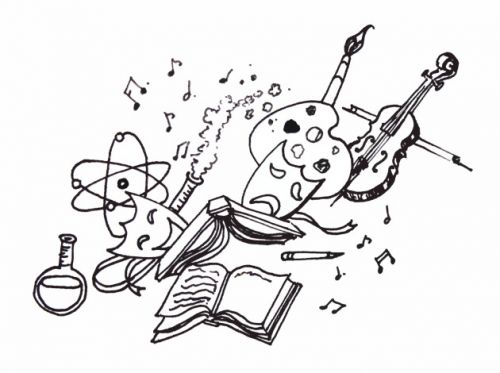
Time passes so quickly; when I first came to work at Yale in the eighties, I was the youngest of the professors in the East Asia Languages and Literatures Department. Now I am the oldest professor in the department. I have already been teaching at Yale for nearly 32 years.
But it’s not just I who has changed in these 32 years — my students have changed as well, and so too has college-level education in America.
In recent decades, American educational institutions have seen a gradual decline of the humanities. The number of college students majoring in humanities has halved: During the 1960s, humanities majors comprised 14 percent of all students, but by 2010, the number had decreased to 7 percent.
Philosopher Gary Gutting tackled the humanities crisis in a November 2013 New York Times op-ed entitled “The Real Humanities Crisis.” Gutting believes that the crux of the problem does not lie with the younger generation nor with the humanists themselves. Rather, he argues, today’s society emphasizes sky-high salaries for certain professions such as athletes, but completely neglects the salaries and benefits for those who enter fields within the humanities. Teachers’ salaries are low and schools naturally lose the cultural influence they otherwise might have enjoyed. In a culture that increasingly values money above all else, students drawn to the humanities increasingly choose to enter financial fields or lucrative professions in the technology sector.
I have witnessed this phenomenon in my own classes over the past 30 years. Once, Yale students came to my classes already familiar with canonical works such as Plato, Chaucer, Shakespeare, Milton and Yeats, because they had already read such works in high school. But few of my students have now studied this kind of literature. Of course, my classes mostly introduce classical Chinese literature such as the Book of Songs (Shijing) and the works of such people as Tao Yuanming, Li Bai and Du Fu. But I still want students to attain a certain proficiency in the Western canon, allowing them to establish a comparative perspective in literary and cultural studies. Fortunately, Yale has the Directed Studies Program, which manages to make up for some deficiencies in this area. But nonetheless, student interest in the canon is declining.
This shift in student values troubles me; I worry that under the influence of a profit-driven society, the younger generation will gradually forget our deep-rooted cultural tradition.
Ironically, the architecture of Yale’s campus is a constant reminder of the precious heritage of cultural tradition. This university was established in 1701 when ten Congregationalist ministers donated 40 volumes in hopes of establishing a new learning institution with an emphasis on scholarship and the pursuit of knowledge. In the past 300 years, the origin story of the “book donation” has been repeatedly retold, reminding Yalies of our rich scholastic history. Take Sterling Memorial Library as an example; when the library was first constructed in 1930, the university celebrated the humanities tradition in an unprecedentedly grand and festive ceremony. Faculty, students and alumni attended the proceedings that day; leading the procession were the library staff members, bearing ancient texts and walking step by step to the great doors of Sterling Memorial Library, personally offering up the volumes they carried. They wanted to convey that books are treasured within this great hall of learning.
It’s troubling that students may no longer understand the true value of this cultural spirit. To them, profit is more important than books, and monthly income is far more real than abstract cultural resources. But whose fault is it that the younger generation has become so absorbed with practical gains, and so much less concerned with the value of the humanities?
I think that professors who teach the humanities ought to take on much of the responsibility. If we don’t teach the traditional literary canon to students and if we don’t nurture habits of passionate scholarship, then it is no wonder that they don’t decide to specialize in the humanities. To them, what is now called “the humanities” seems weak and empty; depth must be added and the quality enriched. My Yale colleague Harold Bloom once complained to me that this generation students is the victim of the decline in the literary canon, only reading such popular literature as Harry Potter and not studying traditional classical works.
As educators, we cannot blindly blame students for their deficiencies, absolving our responsibilities as instructors and teachers. If we hope the young can inherit the humanities spirit, then we must make changes in education, teaching more classes that attract students and revitalize passion for the humanities.
By Kang-I Chang, Guest Columnist, Yale Daily News.
Kang-I Chang is a professor in East Asian Languages and Literatures. Contact her at kang-i.chang@yale.edu.
